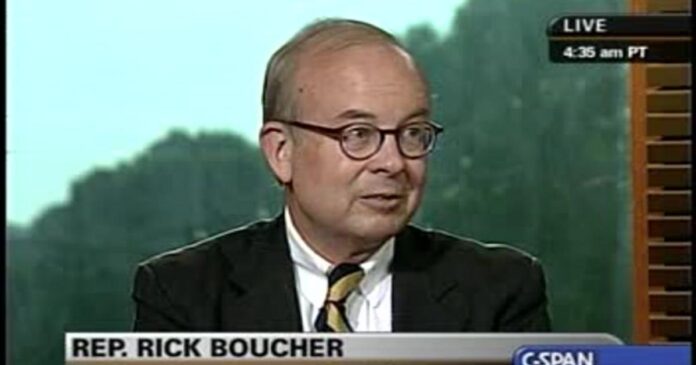Former Rep. Rick Boucher of Virginia’s 9th and the Internet Innovation Alliance talks policy
WASHINGTON – The federal government’s policy regarding the telecom industry is very much in flux. A plethora of issues regarding telecom policies – first raised in an era when the Internet and wireless were in their infancy – need to be updated to reflect the massive changes in technology, as well as the nation’s newfound dependence on it as an engine of economic growth.
Former Congressman Rick Boucher, who represented the Virginia 9th District from 1983 to 2011, has a unique understanding of America’s telecom policy having helped craft much of it. Boucher now serves as the honorary chair of the Internet Innovation Alliance. RCR Wireless News sat down with Congressman Boucher to learn more about two particular issues that are currently being debated in the halls of power: reforming the Lifeline Assistance Program and net neutrality.
Lifeline reform
Lifeline reform refers to an effort by the Federal Communications Commission to expand the $1.6 billion annual subsidy, which provides free landlines and wireless phones to consumers, to also include subsidized broadband. Boucher discussed at length the history of the program, and how he’d like to see it evolve.
“Lifeline was enacted under the Reagan administration with one purpose, and that was to make sure that low-income Americans could afford basic telephone service, and in meeting that goal the program has been remarkably successful. Largely today, because of Lifeline, the United States has the highest connection rate of telephone service anywhere in the world.”
While the program has been successful in achieving its limited initial purpose, Boucher is a proponent of it not only being expanded but also reformed. “Today Lifeline is outdated because it doesn’t cover broadband. Broadband is now the way Americans prefer to communicate and it is absolutely essential.”
Boucher explained IIA has three basic tenants of how it would like to see Lifeline reformed: “First, the program should be expanded to include broadband; second, we believe that carriers should no longer have a role in determining who is eligible for Lifeline. Today, the carriers determine who is eligible for Lifeline and the carriers have every incentive to qualify as many subscribers as possible.”
This method of allowing the carriers to determine qualification has often led to a large number of people who did not qualify for the program. Boucher would rather see the individual state governments determine Lifeline qualification the same way they determine if people are qualified for other federal welfare programs like food stamps.
“The third reform, [which] we think makes a great deal of sense,” Boucher said, “is to send the Lifeline subsidy directly to the consumer, not to the carrier.” This would make the subsidy portable and allow consumers to select the carrier best suited for their needs.
Net neutrality
The subject of net neutrality is a topic Boucher is intimately familiar with. “Net neutrality is the longest standing telecom debate of this century. It started a decade ago and it’s been very controversial ever since, and it is still unresolved.”
Boucher is a long-time proponent of the central tenant of net neutrality, the idea that all information on the Internet should be treated equally.
However, he was opposed to the FCC’s actions in enacting Title II. “That step is inevitably going to retard investment by the broadband providers, who are now uncertain of the extent of the regulation. As long as that uncertainty persists, broadband providers will step back from making large investments into the broadband network. Now that operates to the disadvantage of the entire American public and the American economy.”
Boucher feels that the FCC Open Internet Order, from a legal perspective, “rests on a bed of sand,” and isn’t confident the federal court, which is now hearing the appeal by broadband providers, will side with the commission. In order to settle the net neutrality debate, Boucher said Congressional action is needed. “Congress could put this decade-long debate to bed permanently by passing a very simple bill. This bill would have two provisions. The first of which would be to embed strong network neutrality protections into permanent law. That statute would then be immune from a court challenge and for all time. Until Congress acts again, the network neutrality guarantees would be protected.” Boucher also explained the second component of a network neutrality bill “would be to declare that broadband is an information service, and that common carrier regulations could not be imposed upon it.”
Boucher feels that if such a bill were to ever make it to the floor, it would find broad support because Democrats would favor the network neutrality guarantees, and Republicans would be supportive of declaring broadband an information service. “This is an instance where legislation really is possible, because the issues are few in number and narrowly defined. Both sides of the equation, Democrats and Republicans, have relatively equal leverage, and each side can give to the other what it wants the most, and in that kind of circumstance legislation really is possible.”

